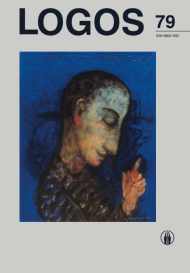Moteriškasis Principas: Filosofinis Konstruktas Ar Realija?
Feminine Principle: Philosophical Construction or Reality? (Seminar)
Author(s): Daiva TamošaitytėSubject(s): Christian Theology and Religion, Gender Studies, Social Philosophy, Sociology of Religion
Published by: Visuomeninė organizacija »LOGOS«
Keywords: Christianity; postmodernism; feminism; equality of sexes; shakti; energy;
Summary/Abstract: During the seminar on the relationship between the philosophical feminine principle and established stereotypes of social life, the value of the principle in the context of Christianity and modern secular Western culture was discussed. From the comparative point of view the lecturer presented a Hindu concept of shakti, which was renewed by Renaissance thought of Bengali philosopher, Aurobindo Ghose (Sri Aurobindo, 1872–1950). She concludes that the gender discourse of power is a prolongation of the patriarchal discourse and that exactly in the latter hides the acute dysfunction of both principles, feminine and masculine. The modern concept of shakti has features in common with the insights of Vydūnas, Vincas Vyčinas, Algis Mickūnas and other Lithuanian philosophers. In this respect the theory of shakti can be useful as an alternative to the Western post-feminist ideology of genderism. Participants of conversation were: dr. Daiva Tamošaitytė (Lithuanian Culture Research Institute), dr. Andrius Konickis (Lithuanian Culture Research Institute), professor dr. Dalia Marija Stančienė (Klaipeda University), Rima Palijanskaitė (Vydūnas Association), professor dr. Algirdas Degutis (Mykolas Romeris University), associate professor dr. Gintautas Vyšniauskas (Klaipeda University), associate professor dr. Tomas Kiauka (Klaipeda University).
Journal: LOGOS - A Journal of Religion, Philosophy, Comparative Cultural Studies and Art
- Issue Year: 2014
- Issue No: 79
- Page Range: 85-94
- Page Count: 10
- Language: Lithuanian

